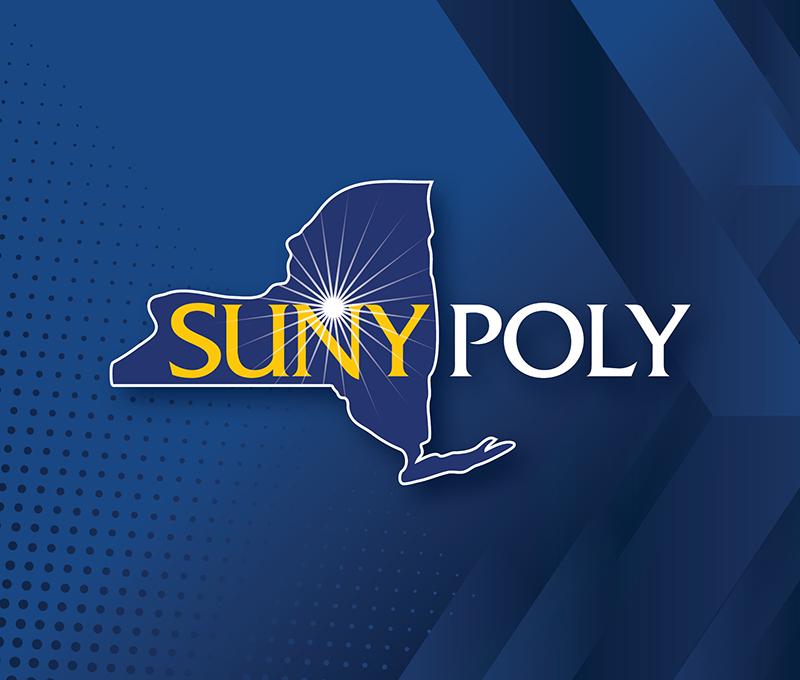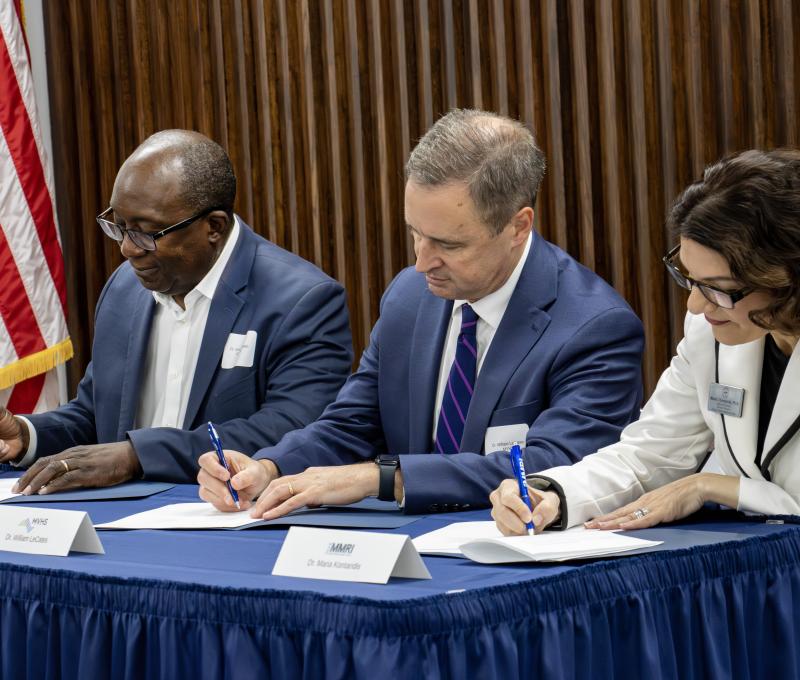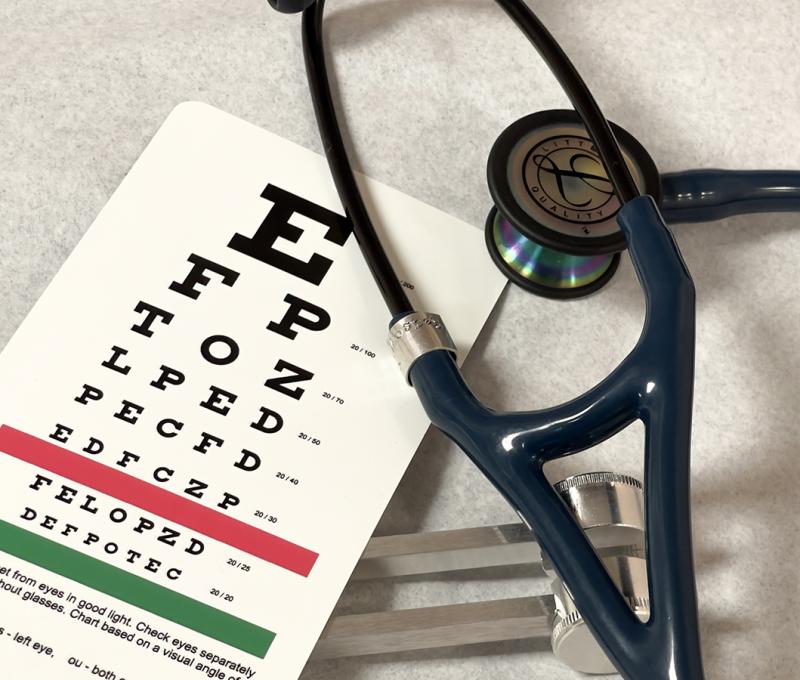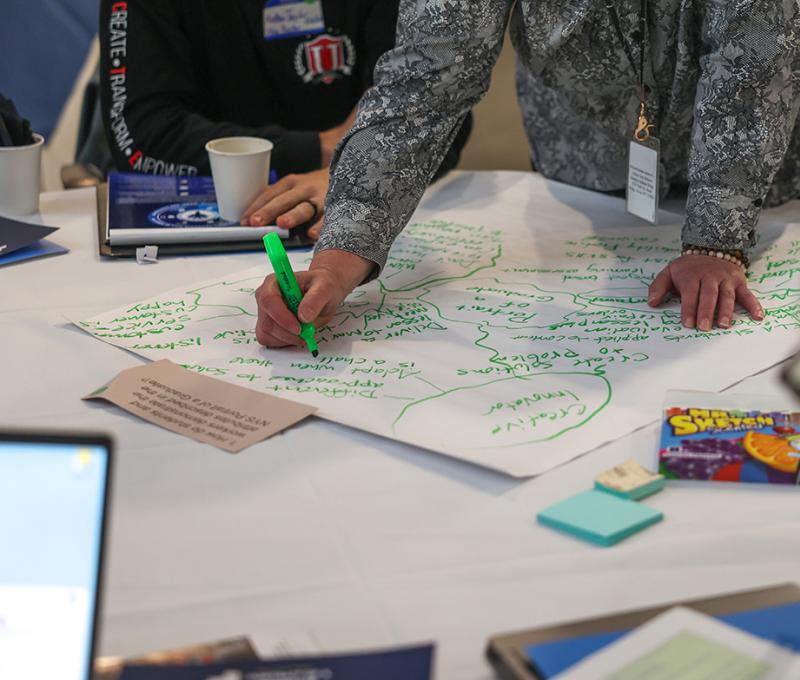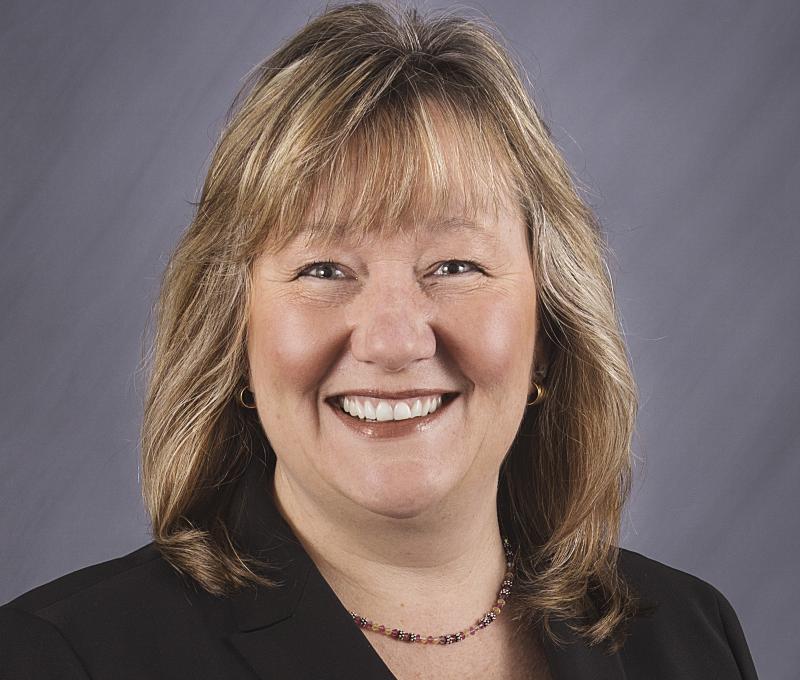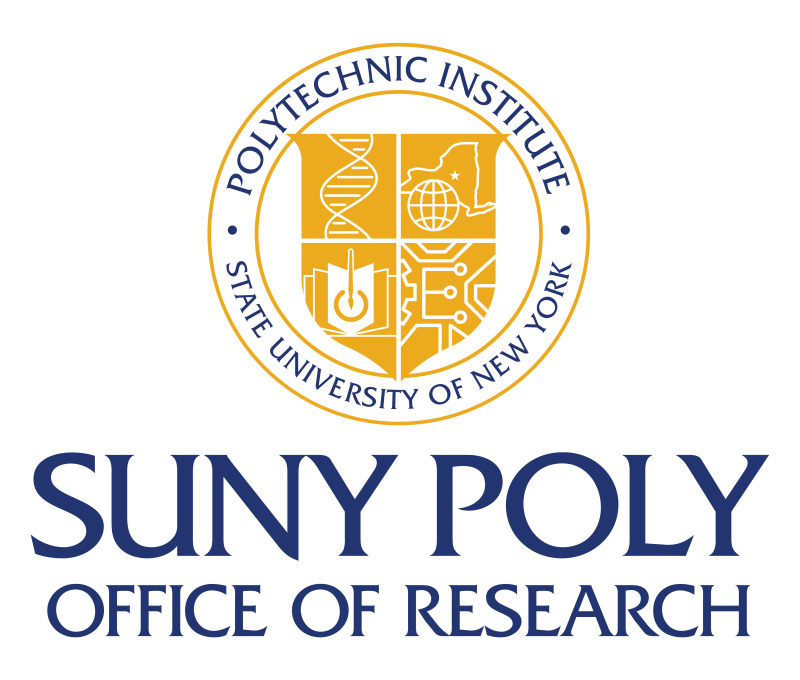SUNY News Release: Chancellor Malatras Announces SUNY to Develop System-Wide Action Plan to Increase Diversity, Equity, and Inclusion and to Combat Racial Inequality and Division

View Original News Release Here
SUNY Students, Faculty, and Staff Urged to Provide Feedback and Proposals Here
SUNY’s Chief Diversity Officer in Collaboration with the SUNY Empire Shirley Chisholm Center for Equity Studies Will Develop Plan Due by end of January 2021
SUNY Also Promotes Year-Long Racial Equity Campaign “64 Actions on 64 Campuses” Taking Place to Lean Into Racial Equity and Justice
For Immediate Release: Friday Oct. 30, 2020
Contact: Holly Liapis; Holly.Liapis@suny.edu; 518-320-1311
Albany, NY – State University of New York Chancellor Jim Malatras today announced that SUNY will develop a system-wide action plan to increase diversity, equity, and inclusion. Chancellor Malatras, in collaboration with the SUNY Board of Trustees, appointed Dr. Teresa Miller, SUNY’s Senior Vice Chancellor of Strategic Initiatives and Chief Diversity Officer, in collaboration with the SUNY Empire Shirley Chisholm Center for Equity Studies to develop an action plan by the end of January 2021 and to focus on concrete and implementable programs to increase diversity at SUNY’s 64 campuses. Chancellor Malatras urges the SUNY community’s involvement in the development of SUNY’s comprehensive action plan. SUNY students, faculty, and staff are asked to provide feedback and additional proposals.
The Chancellor also recognized the actions taking place on its colleges and universities with the promotion of “64 Actions on 64 Campuses” taking place to lean into racial equity and justice, which can be viewed here. SUNY Poly's efforts were highlighted under social justice as "Empowering Our Collective Campus Voices for Social Change."
“To build a more inclusive university system, we must collectively confront serious issues of discrimination, harassment, and the marginalization of individuals in our community,” said Chancellor Malatras. “SUNY’s commitment to equal justice for all is unshakeable, but there is more work to be done. Now more than ever we need action and not just words. Shirley Chisholm said it best by imploring us to stop complaining on the sidelines and getting in the game to make progress by implementing ideas. This process will therefore be focused on listening and then acting, and I have great faith in Dr. Miller and the Shirley Chisholm Center for Equity Studies to develop a robust program. Since the Board of Trustees implemented a sweeping Diversity, Equity, and Inclusion policy, SUNY has made great progress toward becoming the most inclusive institution of higher education—and it serves as a strong foundation for what we need to do today to continue our pursuit to be a more equitable institution.”
SUNY’s Diversity, Equity, and Inclusion policy was approved by the Board of Trustees in 2015. SUNY Board Vice Chairman Cesar Perales, and Trustees Marcos A. Crespo, Eunice A. Lewin, Stanley S. Litow, and Camille Joseph Varlack will provide recommendations and be consulted as the final system-wide action plan is developed.
Chancellor Malatras provided his goals for the diversity, equity, and inclusion action plan, including:
- Assessment of racial equity gaps across SUNY
- Curriculum development towards racial equity and literacy
- Review of the Chief Diversity Officer’s role on every campus
- Increasing diversity:
- Hiring: administrators, faculty, and professional staff
- College Council representation
- Prior learning and transfer credits, and
- Improving campus life:
- Expanded leadership institutes modeled off of the SUNY Hispanic Leadership Institute
- More inclusive clubs, and
- Increased access through seamless pathways, Early College High School, and expanded Educational Opportunity Program
The plan will also examine the connections between historical racism and today’s structural inequities and uncover solutions within higher education.
Feedback and additional proposals may be submitted online by December 1, 2020. Proposals will be considered as SUNY’s Senior Vice Chancellor for Strategic Initiatives and Chief Diversity Officer Dr. Teresa Miller partners with experts within the Shirley Chisholm Center for Equity Studies to inform and further develop the final plan, and they will engage with a broad cross section of groups—including Black, Latino, and Indigenous—within the SUNY community, as well as relying on expertise from outside organizations. They will also review additional proposals from the SUNY community as they inform and further develop the final plan.
“As the nation’s largest comprehensive system of higher education, it is SUNY’s responsibility to lead in issues of diversity, equity, and inclusion,” said SUNY Senior Vice Chancellor of Strategic Initiatives and Chief Diversity Officer Dr. Miller. “As we reflect on the racial inequities plaguing our nation, and the events of this past year, we re-dedicate ourselves — and take pride in — furthering our commitment to racial equity, equal access, and opportunity. Our partnership with the Shirley Chisholm Center for Equity Studies and campus chief diversity officers, as well as engagement from the broader SUNY community, will help us start to forge the path forward to ensuring that students throughout our system from every walk of life are heard and represented as we work to achieve our goals of an increased diverse staff, closing racial equity gaps, and improving the campus climate at each of our institutions.”
The Shirley Chisholm Center and Dr. Miller are also collaborating to assess any racial equity gaps within SUNY to increase social mobility for more students, by expanding academic opportunities and improving campus life to provide additional support for students from underserved communities.
The center’s director Dr. LaTasha A. Brown and board members, including SUNY Chairman Emeritus H. Carl McCall, SUNY Downstate President Wayne Riley, Nassau Community College President Jermaine Williams, Amsterdam News Publisher Elinor Tatum, and Empire State College Interim President Beth Berlin, will be key contributors to the work, as well as the chief diversity officers from each campus sector within SUNY.
Last week, the SUNY community, including 1,300 (now more than 2,200) people and Chancellor Malatras, issued astatement on the importance of diversity training in opposition to the White House Executive Order prohibiting training on so-called "divisive concepts."
When Chancellor Malatras was appointed, he asked the Board of Trustees for a 25 percent pay cut and to receive a salary $450,000 and a $60,000 housing allowance. He has asked that the additional $170,000 be directed every year to the SUNY Educational Opportunity Program for underrepresented students and PRODiG program to increase faculty diversity across SUNY campuses.
About the Shirley Chisholm Center for Equity Studies
The Shirley A. Chisholm Center for Equity Studies, named in honor of the Brooklyn native who in 1968 became the first African American woman to win a seat in Congress, examines and uncovers the roots, workings, and impacts of structural racism and systemic inequities in our communities today.
Based at SUNY Empire’s Brooklyn campus, the center examines the legacy of slavery and colonialism, addresses ongoing racial and economic disparities, and develops policy solutions to work toward a more just and equitable society. Through an examination of the connections between historical racism and today’s structural inequities, the Chisholm Center aims to create opportunities for underserved communities, and to achieve equity through education.
About The State University of New York
The State University of New York is the largest comprehensive system of higher education in the United States, and more than 95 percent of all New Yorkers live within 30 miles of any one of SUNY’s 64 colleges and universities. Across the system, SUNY has four academic health centers, five hospitals, four medical schools, two dental schools, the state’s only college of optometry, and manages one US Department of Energy National Laboratory. As of Fall 2019, more than 415,500 students were enrolled in a degree-granting program at a SUNY campus. In total, SUNY serves about 1.3 million students in credit-bearing courses and programs, continuing education, and community outreach programs. SUNY oversees nearly a quarter of academic research in New York. Research expenditures system-wide exceeded $1.7 billion in fiscal year 2019, including significant contributions from students and faculty. There are three million SUNY alumni worldwide, and one in three New Yorkers with a college degree is a SUNY alum. To learn more about how SUNY creates opportunity, visit www.suny.edu.


